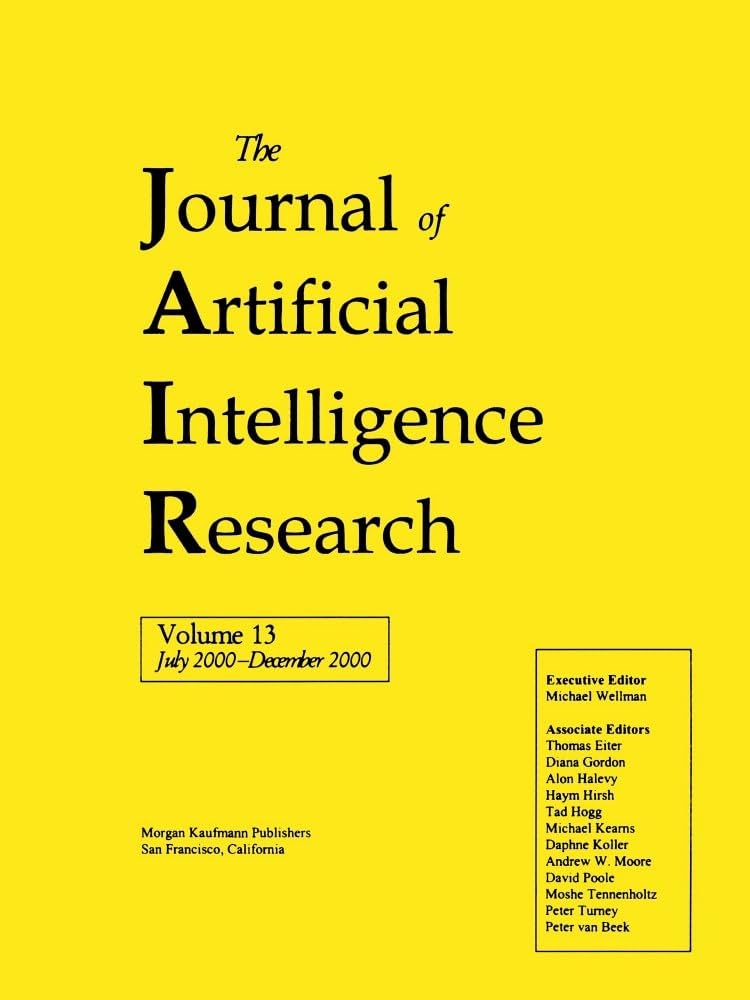集体信念修正
IF 4
3区 计算机科学
Q2 COMPUTER SCIENCE, ARTIFICIAL INTELLIGENCE
引用次数: 0
摘要
在本文中,我们将研究集体信念的动态变化。首先,我们提出了戴维-韦斯特伦德(David Westlund)的集体变化原则(PCC)--一个描述集体知识演变的标准--在信念修正领域。此后,我们建立了一系列不可满解性结果,指出阿尔丘龙、盖登福斯和马金森的修订算子与基本类型的合并操作(包括科尼茨尼和皮诺-佩雷斯以及巴拉尔等人提出的合并操作)结合在一起,会与 PCC 发生冲突。这些不可能性结果实质上是在信念修正的背景下扩展了韦斯特伦德(Westlund)为收缩和膨胀操作建立的负面结果。与不可能性结果相反,我们还建立了一些可满足性结果,证明在某些(相当严格的)要求下,特定合并算子确实遵守了 PCC。总之,我们认为 PCC 是描述集体变化过程的一个相当不合适的属性。最后但并非最不重要的一点,主要是为了应对与 PCC 相关的不尽如人意的情况,我们探讨了集体变化的一些替代标准,并评估了它们与信念修正和信念合并的一致性。本文章由计算机程序翻译,如有差异,请以英文原文为准。
Collective Belief Revision
In this article, we study the dynamics of collective beliefs. As a first step, we formulate David Westlund’s Principle of Collective Change (PCC) —a criterion that characterizes the evolution of collective knowledge— in the realm of belief revision. Thereafter, we establish a number of unsatisfiability results pointing out that the widely-accepted revision operators of Alchourrón, Gärdenfors and Makinson, combined with fundamental types of merging operations —including the ones proposed by Konieczny and Pino Pérez as well as Baral et al.— collide with the PCC. These impossibility results essentially extend in the context of belief revision the negative results established by Westlund for the operations of contraction and expansion. At the opposite of the impossibility results, we also establish a number of satisfiability results, proving that, under certain (rather strict) requirements, the PCC is indeed respected for specific merging operators. Overall, it is argued that the PCC is a rather unsuitable property for characterizing the process of collective change. Last but not least, mainly in response to the unsatisfactory situation related to the PCC, we explore some alternative criteria of collective change, and evaluate their compliance with belief revision and belief merging.
求助全文
通过发布文献求助,成功后即可免费获取论文全文。
去求助
来源期刊

Journal of Artificial Intelligence Research
工程技术-计算机:人工智能
CiteScore
9.60
自引率
4.00%
发文量
98
审稿时长
4 months
期刊介绍:
JAIR(ISSN 1076 - 9757) covers all areas of artificial intelligence (AI), publishing refereed research articles, survey articles, and technical notes. Established in 1993 as one of the first electronic scientific journals, JAIR is indexed by INSPEC, Science Citation Index, and MathSciNet. JAIR reviews papers within approximately three months of submission and publishes accepted articles on the internet immediately upon receiving the final versions. JAIR articles are published for free distribution on the internet by the AI Access Foundation, and for purchase in bound volumes by AAAI Press.
 求助内容:
求助内容: 应助结果提醒方式:
应助结果提醒方式:


